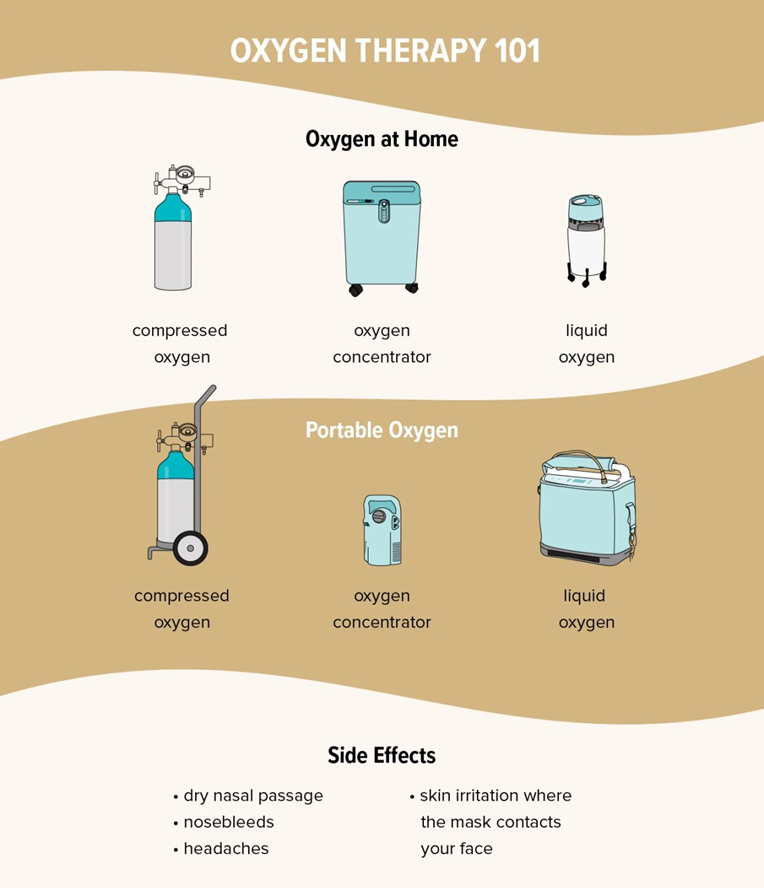A nurse is assisting with the care of a client in the emergency department who reports severe radiating chest pain and shortness of breath. The client appears restless, frightened, and slightly cyanotic. The provider prescribes oxygen by nasal cannula at 4 L/min stat, cardiac enzyme levels, IV fluids, and a 12-lead ECG. Which of the following actions should the nurse take first?
Attach the leads for a 12-lead ECG.
Obtain a blood sample.
Initiate oxygen therapy.
Insert the IV catheter.
The Correct Answer is C
Choice A reason: While attaching leads for a 12-lead ECG is important, it is not the most immediate action required for a client showing signs of distress and potential hypoxia.
Choice B reason: Obtaining a blood sample is necessary for diagnosing the cause of chest pain but is not the first priority in an emergency situation.
Choice C reason: Initiating oxygen therapy is the first and most critical step in managing a client with severe chest pain, shortness of breath, and cyanosis to ensure adequate oxygenation.

Choice D reason: Inserting an IV catheter is important for administering medications and fluids but comes after ensuring the client is receiving sufficient oxygen.
Nursing Test Bank
Naxlex Comprehensive Predictor Exams
Related Questions
Correct Answer is C
Explanation
Choice A Reason:Thrombolytic agents (clot-dissolving drugs) are indeed used to dissolve blood clots that block coronary artery flow during a heart attack. These medications help restore blood flow and prevent further damage to the heart muscle.
Choice B Reason:Bedrest is commonly recommended after a myocardial infarction (heart attack) to reduce the workload on the heart. It allows the heart to heal and minimizes strain during the recovery phase.
Choice C Reason:Timely diagnosis of myocardial infarction is crucial because early intervention can significantly impact the extent of muscle damage. Rapid treatment helps preserve heart tissue and prevent complications.
Choice D Reason:Percutaneous coronary intervention (PCI) involves using a stent to reopen a blocked coronary artery. This procedure restores blood flow and improves outcomes for patients with myocardial infarction.
Correct Answer is C
Explanation
Choice A reason: While disintegration indicates a pill is no longer stable, it is not specific to nitroglycerin tablets.
Choice B reason: The absence of a tingling sensation may not necessarily indicate that nitroglycerin tablets need to be replaced, as this sensation can vary.
Choice C reason: Nitroglycerin tablets should be replaced if they smell like vinegar, as this indicates that the medication may have degraded and may not be effective.
Choice D reason: Discoloration can occur due to various reasons and does not specifically indicate that nitroglycerin tablets have lost potency.
Whether you are a student looking to ace your exams or a practicing nurse seeking to enhance your expertise , our nursing education contents will empower you with the confidence and competence to make a difference in the lives of patients and become a respected leader in the healthcare field.
Visit Naxlex, invest in your future and unlock endless possibilities with our unparalleled nursing education contents today
Report Wrong Answer on the Current Question
Do you disagree with the answer? If yes, what is your expected answer? Explain.
Kindly be descriptive with the issue you are facing.
